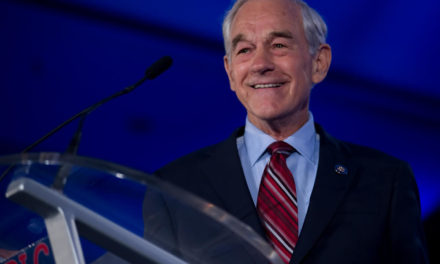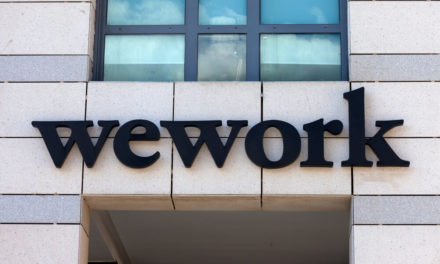Stocks closed lower as a spike in oil prices raised fresh worries about the strength of the global economy and more in Monday’s Stock Market Update.
The U.S. and international benchmarks for crude oil each rose more than 14% after a weekend attack on oil facilities in Saudi Arabia. Shares of oil producers jumped, with Marathon Oil gaining 11.5%.
Companies in fuel-dependent industries fell. American Airlines dropped 7.3% and Carnival Corp. slipped 3.2%.
The S&P 500 was down modestly, and gainers across the New York Stock Exchange were running ahead of decliners. Energy stocks climbed with the price of oil, while airlines and other companies that have big oil and fuel bills were sharply lower.
The stock market has been volatile since the summer, as worries waxed and waned about the U.S.-China trade war. The most recent move for stocks had been higher, boosted by renewed optimism in recent weeks about easing tensions between Washington and Beijing, and the S&P 500 had climbed back within 1% of its record. The Dow Jones Industrial Average rose the past eight trading sessions.
STOCK MARKET UPDATE
KEEPING SCORE: The S&P 500 slid 9 points, or 0.3%, to 2,997. The Dow Jones industrials fell 142 points, or 0.5%, to 27,076, breaking an eight-day win streak. The Nasdaq fell 23 points, or 0.3%, to 8,153.
Major stock indexes in Europe also fell. Markets in Asia finished mixed.
ENERGY SPIKE: The attack in Saudi Arabia caused a big disruption to oil supplies, but only a temporary one. Other countries can release some of the oil supplies they’ve built up in reserves to make up for the loss, analysts said. The bigger threat is the worry about more attacks in the future.
“At a time when oil markets have been in the shadows of a weak global macroeconomic backdrop, the attack on critical Saudi oil infrastructure calls into question the reliability of supplies from not just one of the largest net exporters of crude oil and petroleum products but also the country that holds most of the world’s spare production capacity,” Barclays analyst Amarpreet Singh wrote in a report.
Benchmark U.S. crude jumped $8.05 to $62.90 per barrel. Brent crude, the international standard, rocketed up $8.80 to $69.02 per barrel.
That helped energy stocks in the S&P 500 surge 3.7%. Marathon Oil gained 11.5%, Devon Energy jumped 12.1% and oilfield services provider Halliburton climbed 10.9%.
PAIN AT THE PUMP: Airlines have huge fuel bills, and any rise in the price of oil can hurt them. American Airlines Group, which spent $3.7 billion on fuel and taxes in the first half of the year, fell 7.2% for one of the biggest losses in the S&P 500.
United Airlines lost 2.8%, and Delta Air Lines dropped 1.5%.
Cruise ships also burn lots of fuel, and Carnival slid 3.2%.
STRIKE ONE: General Motors slumped 4.2% after more than 49,000 members of the United Auto Workers went on strike. The union and company have been locked in contract talks, and it wasn’t clear how long the walkout would last.
WEEK AHEAD: The week’s headline event is the Federal Reserve’s meeting on interest rates. Investors are confident the central bank will cut short-term rates by a quarter of a percentage point to a range of 1.75% to 2%. It would be the second such cut in two months, as the Fed tries to protect the economy from a global slowdown and the effects of the U.S.-China trade war.
“We’ll have a little bit more color into the expectations within the Federal Reserve’s voting market committee and to what extent they feel, for the rest of the year and into 2020, how rates could change,” said Keith Buchanan, portfolio manager, at Globalt Investments. “The forward guidance is going to be critical.”
Other central banks around the world are also making moves to help their economies amid slowing global growth. The European Central Bank last week cut interest rates and restarted a bond-buying stimulus program.
HAVENS: Prices for U.S. government bonds rose as investors moved into safer investments. Yields for bonds fall when their prices rise, and the yield on the 10-year Treasury dropped to 1.84% from 1.90% late Friday. The yield on the two-year Treasury, which moves more on expectations for Fed policy, sank to 1.76% from 1.79%.
SMALL FEAT: Small stocks once again did better than their larger rivals, continuing a trend that’s been in place the past couple weeks.
The Russell 2000 is up nearly 7% since Sept. 4, while the big stocks in the S&P 500 are up only about 2%. If the trend lasts, it will mark a sharp turnaround from the last year, which saw big companies dominate their smaller rivals as worries about a possible recession pounded stocks seen as riskier investments. Earnings have also been falling more sharply for smaller companies.
That long stretch of sharp underperformance may have created a raft of bargains, some analysts say. Small stocks recently hit their cheapest level relative to the big stocks in the Russell 1000 since the summer of 2003, according to Jefferies.
© The Associated Press. All rights reserved.




